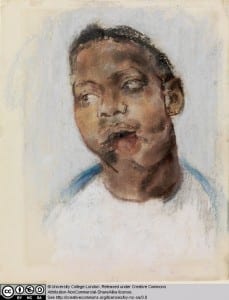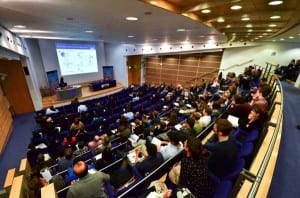UCL Ageing event
By ucyow3c, on 15 November 2016
![]() Written by Dr Emma Chambers, Research Associate in the Division of Infection and Immunity
Written by Dr Emma Chambers, Research Associate in the Division of Infection and Immunity
The United Kingdom has an ageing population and by 2025, one in four people will be over the age of 65. Unfortunately with increasing age there is not increasing ‘healthspan’, and actually people are now living unhealthy for longer.
With increasing age come increasing health problems, as people over the age of 65 have an increased risk of infections such as flu and shingles, as well as an increased risk of having dementia; this collectively places a huge burden on our already stretched NHS.
At the UCL Ageing Event – cultivating research connections across the university, arranged by the UCL Populations and Lifelong Health Domain and held on Thursday 3 November 2016, researchers from across UCL came together to discuss what we can do to age better.
Attendees heard first from Dr Jenny Regan (Department of Genetics, Evolution and Environment) who works on the common fruit fly. Apparently, the fruit fly ages similarly to humans, with decreased mobility, increased infections and memory loss.
Dr Regan told us that the key to a longer life is to be female – a bit unfortunate for half of the population! Secondly, you need to have a calorie restricted diet, though this does not enhance the lifespan of a male fruit fly.
Dr Milica Vukmanovic-Stejic (Division of Infection and Immunity) introduced us to her human skin model where the lab studies white blood cells (immune system) in the skin of old and young people to establish if there are any differences that can explain why older people are more at risk of shingles. (more…)
 Close
Close




